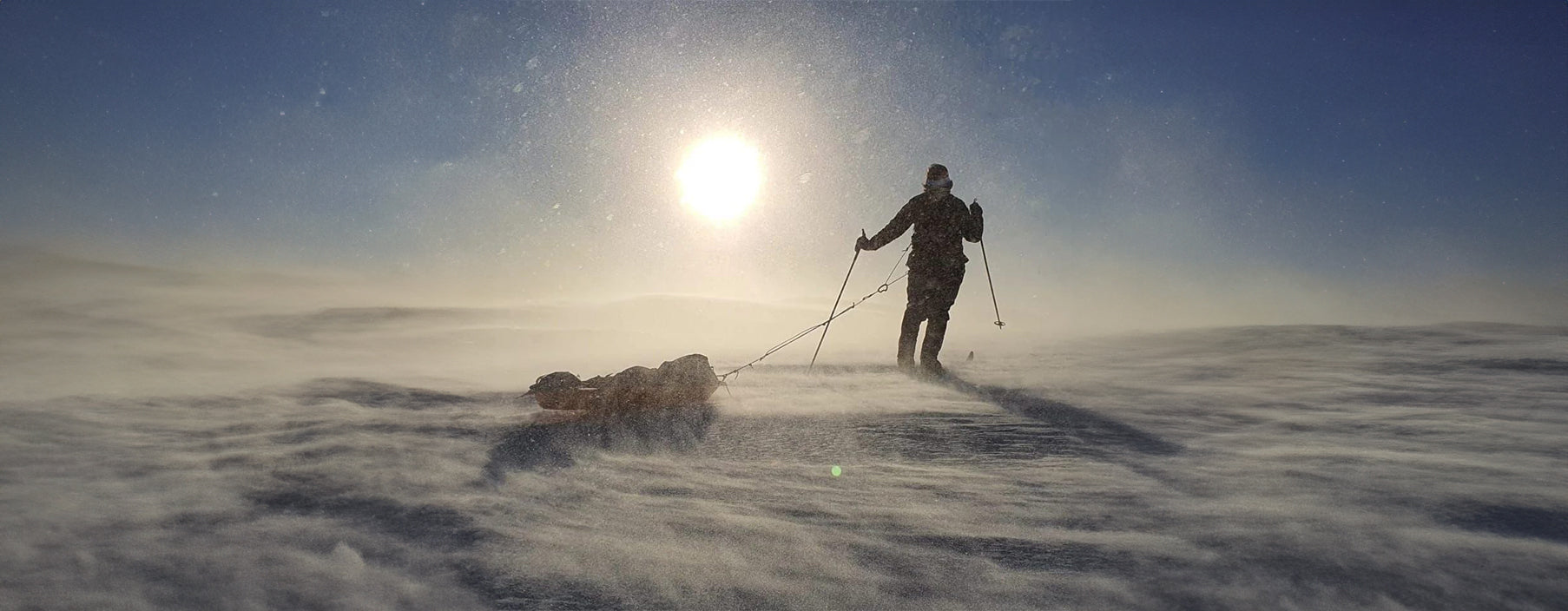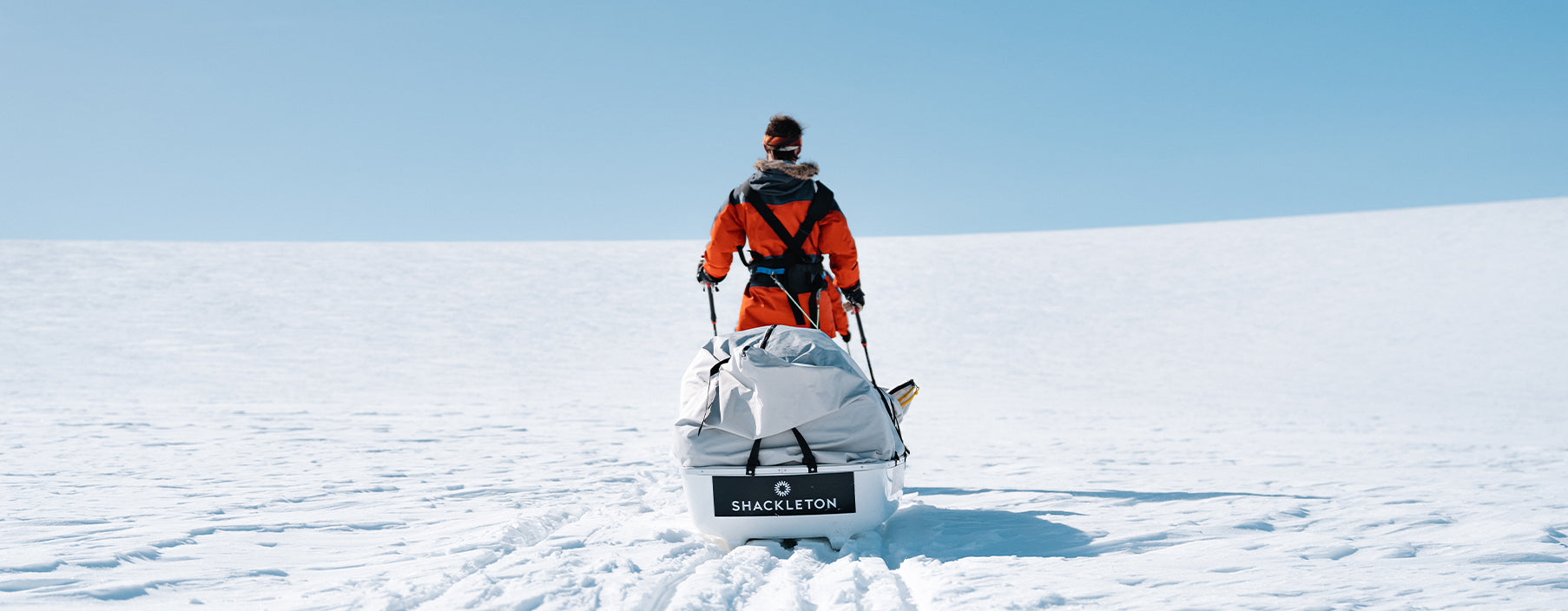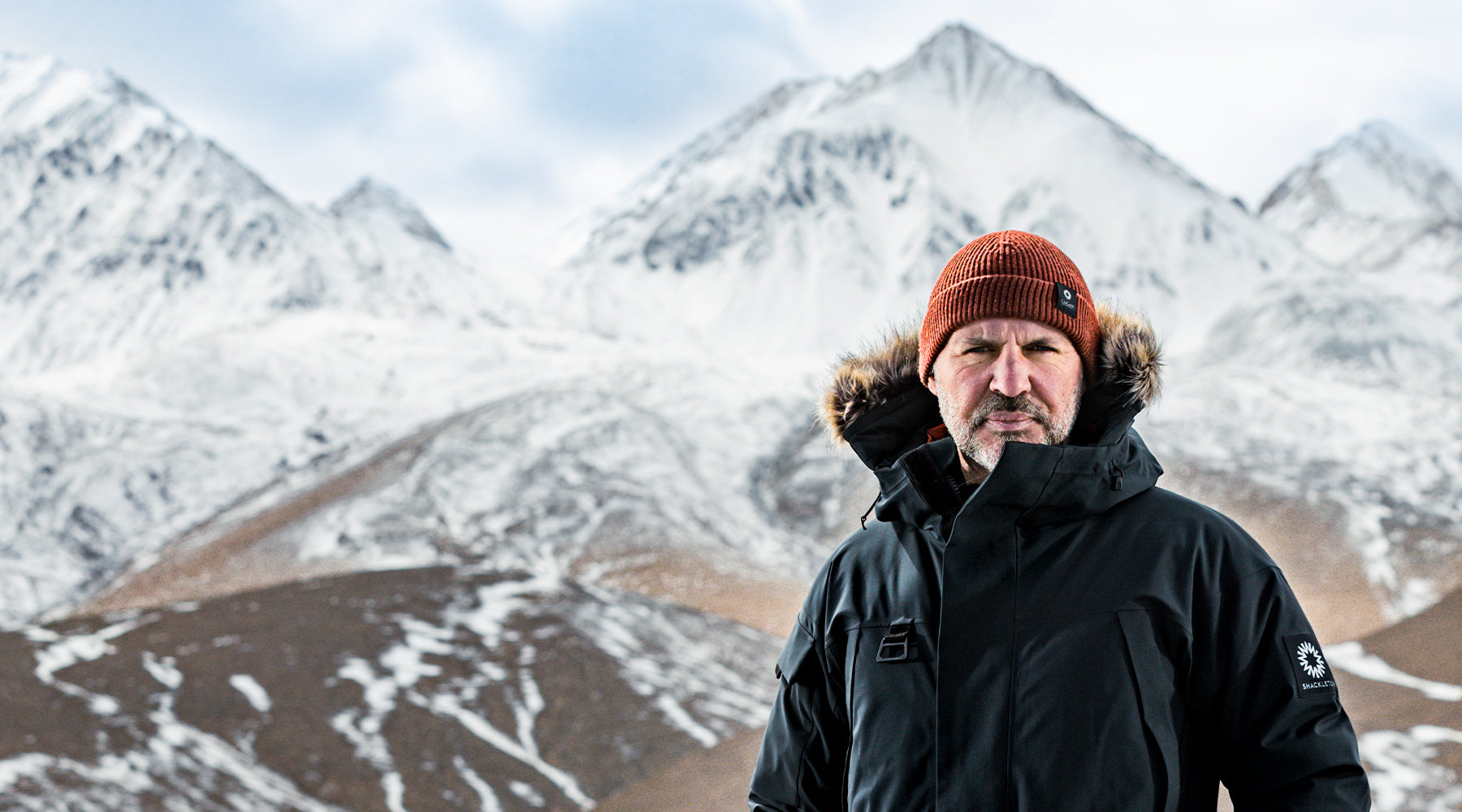
Antarctic Fire Angels // Pre-Expedition Journal
This month Georgina Gilbert and Rebecca Openshaw-Rowe will embark on an expedition to Antarctica. Four years in the making, the two firefighters will take on a world first route from Union Glacier to the South Pole, aiming to inspire women and girls to achieve their ambitions. If successful, they will be the first 999 emergency services team to ski to the South Pole. Unguided, unassisted and unsupported. Here Bex and George share the meticulous training regime which took them from polar novices to ambitious explorers.
It started four years ago at a Women in the Fire Service conference at the Fire Service College, Moreton on the Marsh. The keynote speaker was Sophie Montagne who was one of the Ice Maidens, a British Army team, all women who skied Coast to Coast via the pole a few years previously. From the moment Sophie put the first image up on the screen, I was utterly captivated by not only what Sophie was saying but by the stunning imagery she had beside her. I love things that give me goosebumps and from that moment, I knew I had to ask Sophie if a bunch of Fire Fighters could do what her team had achieved. Her answer was of course “Yes you can”!

And so the team was formed, initially from two different brigades, South Wales Fire and Rescue Service and London Fire Brigade. Over time the team has changed in members and numbers, the final paring being myself and Bex. Being a team of two brings its own advantages and challenges. The former being that it’s easier to organise and coordinate. The latter being that if one of us becomes ill or injured on the expedition, the other must pick up ALL the slack. We can no longer divide the extra weight amongst other team members, and this thought weighs heavily on our shoulders. We are now solely responsible for each other’s welfare as well as our own. We work well together though, we’ve developed a sisterly relationship, a bicker here and there is soon forgotten. Considering we didn’t know each other four years ago; you wouldn’t believe it.
The first segment of training was in Norway, two weeks in total. The first week was “learn to ski”. Bex and I couldn’t ski, complete novices and this week didn’t go without its mishaps and falls including getting run over by our pulks, crossing a frozen lake in high winds and general tumbles that hurt, a lot! The second week was on Hardangervidda, our first taste of real expedition training from camp life to multiple days of skiing to pitching in high winds and getting our first taste of a 30mp/s storm on the penultimate day. This week brought home the reality of what we had signed up for. This second week we met our Norwegian fixer Aina Prestholt whom we have relied on for advice as well as helping us organise future training.
The next segment of training, and during the ups and downs of COVID, we decided to head to Sweden after an invite from a trainer there, Toby Cowern. Here we put in to practice in to practice what we’d learnt in Norway, but in much finer detail, scrutinising every practice, honing our skills and making ourselves as slick and efficient as possible. The end of this week saw us heading out close to the edge of the Arctic Circle to experience what hills can do to a person’s attitude, mentality, and motivation. Hills are excellent tools to add frustration and stress to a team physically and mentally, and they worked! We learnt not only our own triggers but also those of our teammates and how we manage and pull through them so that we can continue to function efficiently.

The next segment of training in Sweden was on a very deliberately dull route, with long hills, few vistas and just to add monotony, poor snow which slowed progress greatly. The plan here was to achieve the 10 hour segments and practice stopping every 90 mins for a break etc. Poor weather and warmer temperatures really pushed us to the point of misery. Not what is expected for training for Antarctica but, what it achieved was a whole new tolerance of what we were willing to put ourselves through. How far we were willing to suffer and push ourselves.
Norway – the final push!
February to March 2023 saw us heading to Hardangervidda for our final training session. Three weeks on the plateau to really push ourselves as far as we could. Starting from Finse we skied off the platform and headed into the mountains.
The first week saw us enjoying amazing weather, stunning scenery but with lots of hard work. Our fixer Aina made sure she’d planned a route that was challenging with hills, navigational difficulties and sometimes climbing higher than Ben Nevis four days in a row, whilst still pulling 75kg pulks.
The second week brought a weather system that, we were told, most Norwegian’s don’t venture out in to. It started with a 40m/sec storm which, we decided was sensible to ride it out in shelter in our tents. After it had cleared the following day, the temperatures plummeted to minus 27°C in the tent at night. This was definitely a week where we questioned all our life choices. At the end of this week Nikki, who was one of the original members of the team suffered frostbite in her fingers and had to be evacuated via helicopter within the hour. This left us pulling the remaining equipment and that this point we decided to cut a corner off our loop and start heading back to Finse. We were still five days out from being close to Finse at this point.
Jump to the last day on the plateau, we skied in towards the hotel only to bump in to team Shackleton just about to head out themselves into the wilderness! The polar world is a small one, but an incredibly supportive one.

It has been four incredible years of planning, training and fundraising, many ups and downs and now that the leaving date of November 10th approaches and we finalise our route – Union Glacier to the Pole (no one has done this route before) we are incredibly grateful for all of the support we’ve had so far and of course the support of Shackleton and the ground breaking women’s specific pulk suit they have kindly supported us with. But, the one thing that keeps us motivated and moving forward is our “why”.
“Changing the narrative of what it means to be a girl.”
By being visible role models we aim to inspire all generations of women and girls to achieve beyond gender barriers imposed on them by societal stereotyping.
You can follow along with daily updates on Antarctic Fire Angels page on the Shackleton website once the journey begins.


